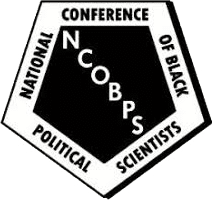Shayla C. Nunnally, President
Sekou Franklin, President-Elect
Contact: 662-254-3094 or 3092
We all have been young and dreamed about a brighter future. Parents dream about opportunities for their children, and young people dream for success without fear of retribution and discrimination. To dream is universal. This is true for descendants of enslaved Africans, immigrants past and present, and the millions of today’s undocumented and unauthorized residents living in the United States.
The Deferred Action for Childhood Arrivals (DACA) program was established by President Barack Obama in 2012, after a decade of protests by immigration rights’ activists. It gave temporary citizenship-status to nearly 850,000 undocumented immigrants who arrived as minors to the United States. It also gave DACA recipients—known as “Dreamers”—relief from restrictive immigration statutes, which for a decade, had been implemented by state and federal lawmakers.
Despite DACA’s enactment, President Donald Trump announced an end to the policy on September 5, 2017. His decision is a devastating blow to Dreamers, their families, and the civil rights coalition that backed the policy. DACA’s revocation reflects Trump’s nativist impulses recycled into a modern-day “Know Nothing” political orientation. This policy reversal devalues due process, while making children the targets of punishment based on the decisions of their parents.
The National Conference of Black Political Scientists (NCOBPS) was founded in 1969 with the goals of studying and enhancing the liberation of people of African descent. These goals are intrinsically connected to what black political scientists call a universal freedom—a collective deliverance by blacks and non-blacks from oppression. DACA’s reversal undermines the quest for universal freedom. It destroys the spirit of the American Dream. Even though DACA affects mostly Latino immigrants, the policy reversal is also injurious to immigrants from Africa and the Caribbean. Moreover, as race and immigration policies have been enacted historically, they have had disparate effects on Southern and Eastern Europeans and Asian immigrants. Today, we recognize that the rescission of a policy, like DACA, has the potential to affect non-white immigrants disparately.
NCOBPS understands that the history of immigration policy in the United States has been burdened by white supremacy as demonstrated by the Naturalization Act of 1789, which limited citizenship to “free white persons,” and the eugenics-movement-influenced Immigration Act of 1924. Although enslaved Africans in the United States were given access to natural-born citizenship via the Fourteenth Amendment of the U.S. Constitution in 1868, it was not until the Naturalization Act of 1870 that Africans not born in the United States could naturalize, legally. And, despite access to citizenship by law, African-descended people did not have access to fuller citizenship rights until the mid-twentieth century. For Africans and other groups, access to citizenship, civil rights, and equality have been piecemeal, over time.
NCOBPS implores lawmakers to protect the Dreamers. To not do so means DACA’s cancellation will rupture countless numbers of families and community institutions. Allowing DACA to end also raises the question asked in 1951 by poet, Langston Hughes—“What happens to a dream deferred”? For hundreds of thousands of Dreamers who lived most of their existence in the United States, to paraphrase Hughes, DACA’s rescission means that their dreams will “dry up like a raisin in the sun.” To target children and potentially criminalize them, as they are among some of the most vulnerable members of our society, furthermore, detracts from American values and neutralizes the possibilities of the American Dream.
